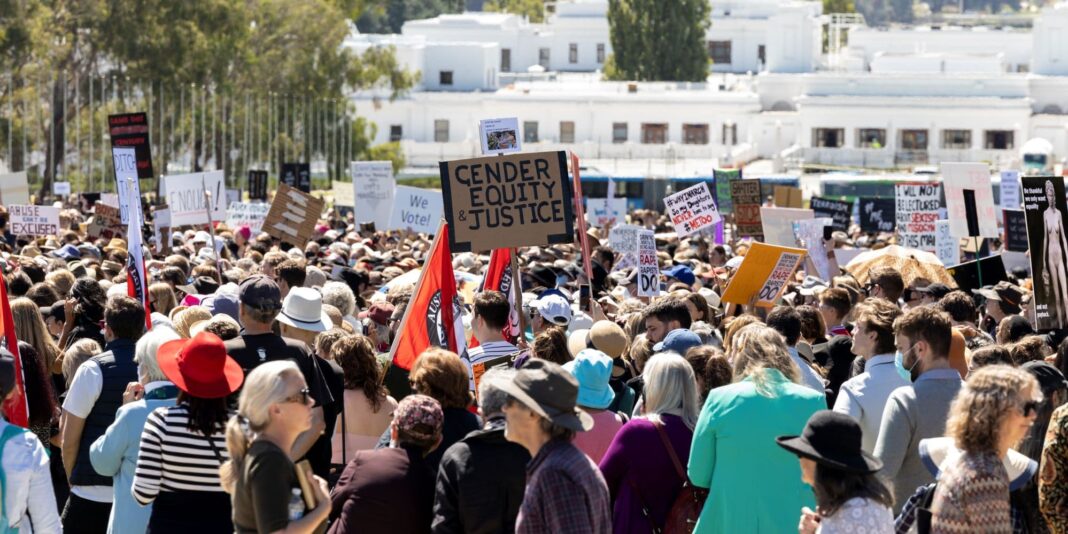Views on sexual assault and harassment in the workplace have influenced “a very large decline in confidence in Federal Government among Australian voters”, new analysis from The Australian National University (ANU) shows.
The longitudinal survey of 3,200 adults also found there has been a large drop in the number of Australians who say they would vote for the Coalition.
Collected in April 2021 but linked to responses from the same individuals gathered prior to the pandemic, the survey forms part of the COVID-19 monitoring program led by the ANU Centre for Social Research Methods (CSRM), and is the largest study of its kind in Australia.
Co-author Professor Nicholas Biddle said less than half of Australian adults were confident in the Federal Government.
“This is a milestone,” he said.
“Confidence in government is a key indicator of people’s view on institutions in Australia, and for the first time since the pandemic commenced, the majority of Australians no longer have confidence in the Government.
“There was a very large decline in confidence in the Federal Government in Canberra between January 2021 and April 2021, from 54.3% who said they had a great deal or quite a lot of confidence in January 2021 to 45.4% in April 2021.
“This is much lower than the peak value of 60.6% in May 2020.
“However, it is still well above the 27.3% who reported confidence in the Federal Government in January 2020, during the height of the Black Summer bushfires.”
The study also examined voting intentions and Australians’ satisfaction with the direction of the country.
“There has been a large decline in the number of Australians who said they would vote for the Coalition. In January, this sat at 40.3%. In April this was 37.3%,” Professor Biddle said.
Between January and April, satisfaction with the direction of the country also declined – dropping from 78.9% of Australians saying they were satisfied to 75.7%.
“While still far higher than pre-COVID, satisfaction with the direction of the country is lower than the peaks observed in May and November 2020,” Professor Biddle said.
“Females, those born overseas, those who speak a language other than English, and those who live in the most disadvantaged of neighbourhoods are more likely to be satisfied with the direction of the country.
“Indigenous Australians, on the other hand, are far less likely to be satisfied.”
Another key issue in the spotlight was sexual assault and sexual harassment in the workplace.
The survey found a significant majority of Australians think sexual harassment and assault are major issues in today’s workplaces.
More than three-quarters of Australians, 76.8%, think “men getting away with committing sexual harassment or assault” was a major problem.
More than seven in 10 Australians, 71.6%, said “women not being believed when they claim that they have experienced sexual harassment or assault” was also a major problem.
In contrast, a minority of Australians, 40.9%, say “employers firing men who have been accused of sexual harassment or assault before finding out all the facts” was a major problem.
A slightly larger number, 41.9%, think “women claiming they have experienced sexual harassment or assault when it hasn’t actually occurred” was a major problem.
One of the key findings from the analysis was the relationship between views on sexual assault and harassment and the confidence/voting measures in the paper.
“A person’s own gender appears to affect views on sexual assault and harassment in the workplace,” Professor Biddle said
“However, it is these views rather than gender itself that have had the greatest impact on confidence in government and voting intentions.”
Starting in April 2020, the ANU COVID monitoring program has been tracking the impact of the pandemic on Australians across a range of issues.
Data was collected by the Social Research Centre.
For more news:



